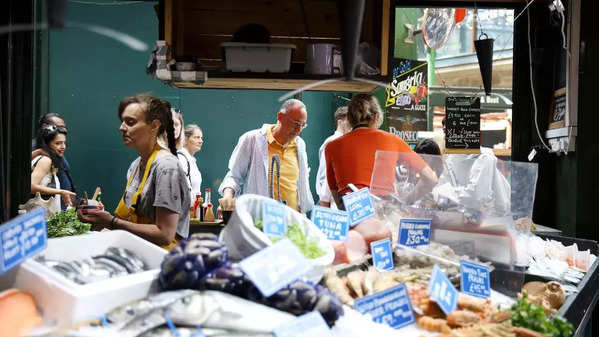Why shoplifting 'frenzy' is on the rise in Britain

25-Sep-2023 03:58 PM
It seems Britain is in the grip of a shoplifting 'frenzy' this year. According to the Office for National Statistics, shoplifting offenses have surged by 25% this year in the UK . The British Retail Consortium estimates that there were nearly eight million shoplifting incidents in the 12 months leading up to March, causing retailers almost £1 billion in losses, a Bloomberg report said. However, this wave of shoplifting is not limited to the UK, as reports suggest that thieves are using social media platforms such as TikTok to share tips on stealing goods from stores in Europe and the US, including chains like Walgreens, Walmart, and Dollar Tree. What is worrisome is that while there is a general decline in overall crime, shoplifting is rising. As per the Bloomberg report, organized criminal groups are behind much of this increase, targeting high-value items such as steaks and alcohol for resale on the black market . The rising cost of living has also contributed to the demand for discounted products, even if they are sold illegally, the report said. "Criminals see shoplifting as a low-risk, high-reward crime due to the demand for the stolen goods. Shoplifters have become bolder, often brazenly walking out with stolen items rather than trying to conceal them," Andrew Goodacre, CEO of the British Independent Retailers Association, said. According to a report in the Economist, a change to the law in 2014 may have unintentionally incentivized criminal gangs to recruit shoplifters and encouraged individuals to engage in theft for personal gain. This change reclassified shoplifting of goods valued at £200 ($245) or less as a summary offense, which is tried in magistrates' courts rather than crown courts. Consequently, this shift may have discouraged law enforcement from actively investigating such crimes. Police resources are more likely to be allocated towards pursuing repeat offenders, often resulting in short, consecutive prison sentences that yield limited results, the report said. As a result of this heightened theft, there is an increased demand for security guards. Moreover, retailers themselves are implementing solutions, including introducing barriers in self-scan areas, where shoppers must present a receipt before leaving the store. Some shopkeepers are installing locked cabinets to protect high-value items and anticipate that more products may need to be moved behind store counters to deter shoplifters, the report said.